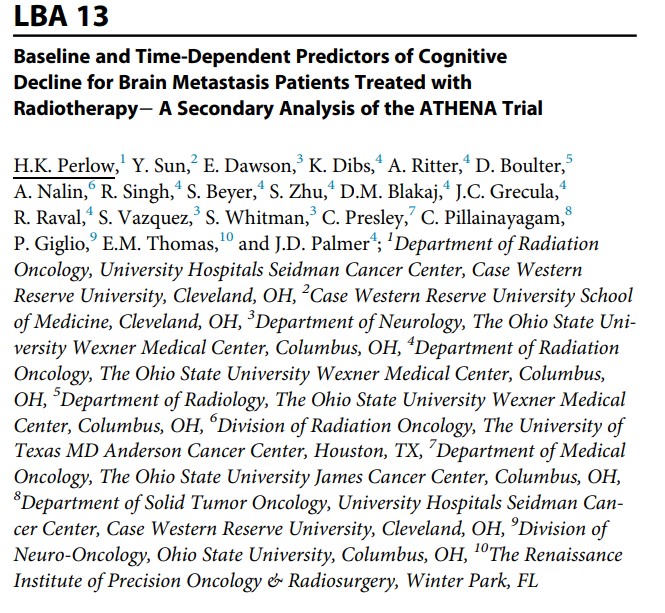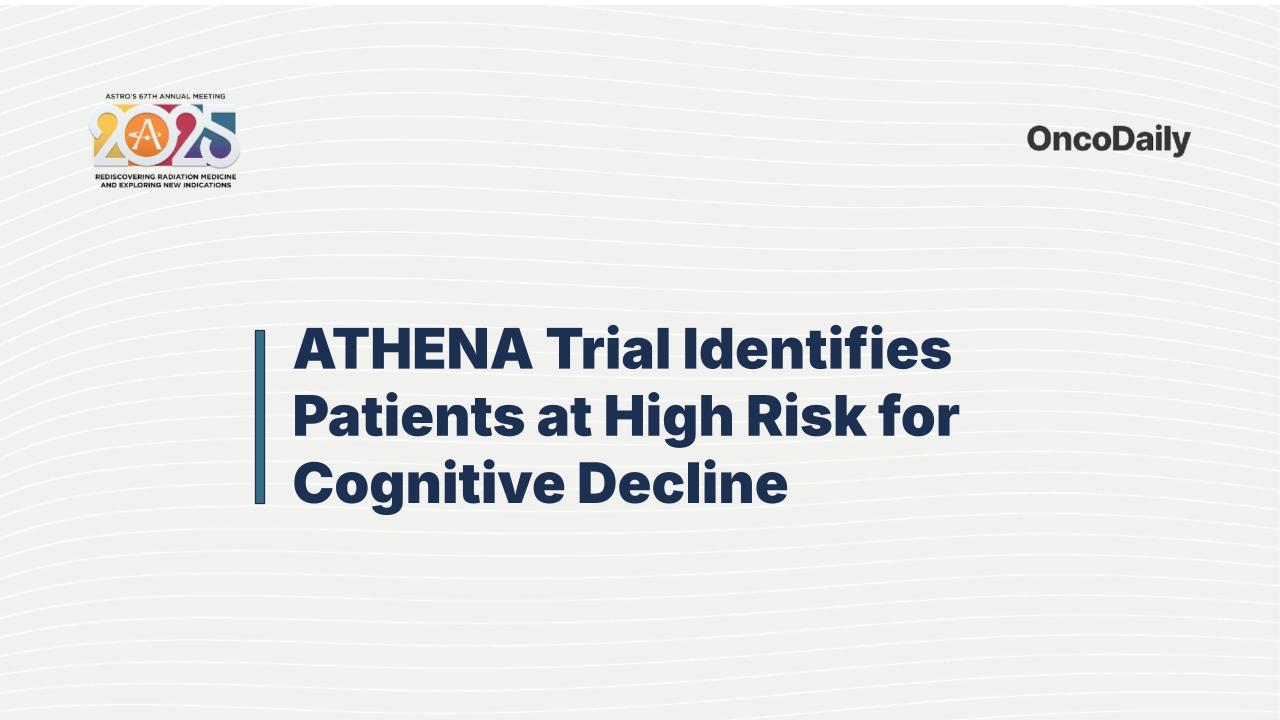Authors: H.K. Perlow, Y. Sun, E. Dawson, K. Dibs, A. Ritter, D. Boulter, A. Nalin, R. Singh, S. Beyer, S. Zhu, D.M. Blakaj, J.C. Grecula, R. Raval, S. Vazquez, S. Whitman, C. Presley, C. Pillainayagam, P. Giglio, E.M. Thomas, and J.D. Palmer
A secondary analysis of the phase II ATHENA trial evaluated baseline and time-dependent factors contributing to cognitive decline in patients with brain metastases receiving radiotherapy. The study sought to determine whether cognitive deterioration was more strongly associated with treatment variables or patient- and disease-related characteristics.

Study design
The ATHENA trial (NCT05503251) enrolled 110 patients with brain metastases between August 2022 and June 2024. Patients were randomized 1:1 to receive either brain radiotherapy alone or brain radiotherapy with neuropsychology evaluation and intervention. Previous analyses demonstrated no difference in cognitive decline between the two arms.
Baseline characteristics collected included radiation type (stereotactic radiosurgery vs. IMRT/WBRT), Karnofsky Performance Status (KPS), sex, education level, primary tumor histology, age, presence of brain metastases at cancer diagnosis, extracranial disease control, number and volume of brain metastases, prior brain radiation, and receipt of systemic therapy or chemotherapy.
Time-dependent factors included receipt of systemic therapy after enrollment, intracranial progression, systemic progression, and survival. Cognition was measured using the Hopkins Verbal Learning Test-Revised, Controlled Oral Word Association Test, and Trail Making Test A/B. Cognitive decline was defined as a decline on at least one assessment using the reliable change index. Analyses were performed using Gray’s test and Fine-Gray regression.
Results
Baseline predictors:
- Higher KPS (>70 vs ≤70) was associated with cognitive preservation (p=0.044).
Time-dependent predictors:
- Increased brain tumor volume predicted cognitive decline (p=0.044).
- Intracranial progression was associated with cognitive decline (p=0.034).
- Systemic progression strongly predicted cognitive decline (p=0.005).
Multivariable analysis:
- KPS >70 retained association with cognitive preservation (p=0.011).
- Systemic progression remained independently associated with cognitive decline (p=0.026).
- Other factors, including radiation type, age, number of brain metastases, or systemic therapy administration, were not predictive.
Takeaway
This ATHENA secondary analysis indicates that in patients with brain metastases treated with radiotherapy, baseline performance status and systemic disease progression may be more predictive of cognitive decline than traditional factors such as radiation modality, age, or number of metastases.
These findings suggest that patients with poor performance status or progressing systemic disease could benefit from targeted cognitive intervention strategies. Personalized monitoring and early supportive measures may help preserve cognitive function in high-risk populations, highlighting the importance of integrating patient- and disease-specific factors into neurocognitive management for brain metastasis patients.
Read More ASTRO 2025 Late-Breaking Abstracts Here
Written By Aren Karapetyan, MD


